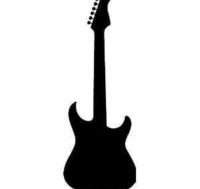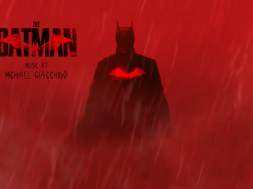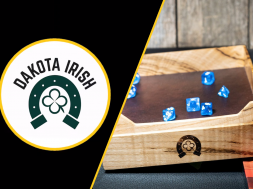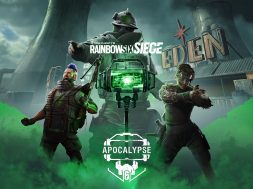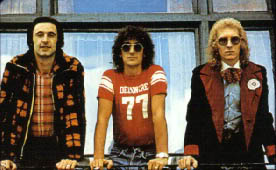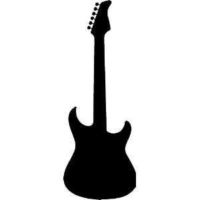
Every so often for a variety of reasons – usually either “creative” or “artistic,”, oddly enough – lineups in bands change, and a new character steps into a previously solid setup, possibly to change the face of the band forever. Here are a few of the success stories, and some you’d rather forget.
THE BEST
Neil Peart – Rush
Joined: July 1974
Replaced: John Rutsey
The running joke is that the drummer in a band is considered lower than the guy who works the merchandise counter – there to keep time and little else.

Anyone who says that about Rush’s Neil Peart is apt to get the glaring of a lifetime from legions of rock fans; not only is he considered one of the best drummers of all time, but since taking up the sticks for the ailing Rutsey after passing an audition held by bassist Geddy Lee and guitarist Alex Lifeson, he has become the chief lyricist of the band, putting words and beats to classics like The Spirit Of Radio, Freewill and 2112, and helping to propel them to legendary status in the music world.
Since just last year they released one of 2012’s best albums in Clockwork Angels, it looks like Lee and Lifeson made the right decision.
Phil Collins – Genesis
Joined: October 1970
Replaced: John Mayhew

Love him or loathe him, there is no denying the effect Collins – somewhat disturbingly the second drummer to fill the “Best” side of this list – had on Genesis since taking over as resident skin-basher after the band had run through three drummers in the space of two albums, the last being John Mayhew.
In his time with the band, Collins would go from the back of the stage to the front, eventually taking over from departing frontman Peter Gabriel and turning the former prog-rock outsiders into a cheesy 80s pop-rock powerhouse, scoring hits with the likes of I Can’t Dance and Turn It On Again before going solo and becoming the unfathomably popular synth-pop monster behind In The Air Tonight.
Not bad for someone who’s only real claim to fame before that was once that he was an extra in Beatles movie A Hard Day’s Night and was edited out of Chitty Chitty Bang Bang.
Brian Johnson – AC/DC
Joined: April 1980
Replaced: Bon Scott
This one is probably no secret; already on the cusp of success with original singer Bon Scott before his untimely demise, AC/DCs ever-present Young brothers decided that rather than wallow in grief, they would continue on with a replacement. The story goes that Bon had seen Johnson perform with his band Geordie and told the Youngs who, remembering his praise for the Newcastle native after his death, decided he was worth an audition.
Thirty-three years later, and AC/DC are now an institution, with a career that includes the second biggest-selling album of all time, the mighty Back In Black, and a string of classic songs and memorable gigs – anyone who has seen Johnson ride a fire-spewing train onto the stage sporting his trademark flat cap will be sure to recall it for years to come.
So key to the success of the band has Johnson been that word has it when he announced the possibility of retirement in 2009, his bandmates forbade it and made him change his mind. Enough said, really.
THE WORST
Gary Cherone – Van Halen
Joined: November 1996
Replaced: Sammy Hagar
It’d be unfair to lay all the blame for Van Halen’s decline at Gary Cherone’s door; by the time he joined the band, they’d already fallen out with two singers who couldn’t match guitar virtuoso Eddie Van Halen’s lofty and mostly unclear requirements, and were in something of a musical and commercial tailspin. But he had a hand, like it or not, in the nadir of the band’s career.
While the former Extreme vocalist might have had a shot at replacing Sammy Hagar and making something of himself in the band, chances of ever capturing the kind of chemistry of Van Halen’s first run with original singer David Lee Roth were never on the cards. They released one album, the musically mangled and critically un-loved Van Halen III, and embarked on the poorest-performing tour in the band’s history, after which they went on a near 20 year hiatus before eventually going back to working with Roth and releasing the rough yet enjoyable A Different Kind Of Truth.
A failure in the Extreme.
JD Fortune – INXS
Joined: September 2005
Replaced: Michael Hutchence
The hunt by Aussie rockers INXS for a replacement for the deceased Michael Hutchence after a lengthy break from performing was one of the first to be done through the medium of a reality show. The eventual winner of the Rock Star: INXS competition was Canadian warbler JD Fortune, who nabbed the role after breaking the rules of the competition, going off on his own to write the lyrics to the song Pretty Vegas as part of a team-based challenge.
Despite the moderate success of the resulting album, Switch, and some successful touring, things went completely off the rails, with Fortune descending into cocaine abuse and being fired from the band once in 2009 (apparently by accident!), leaving him to end up living in his car while recording a solo album, before returning and being let go for good in 2011.
INXS would perform with a number of guest singers for the remainder of the year, before hanging up their boots for good.
Joined: 1974
Replaced: Entire Band (no, seriously!)
The story of the formation of Stretch – their song Why Did You Do It? features on the soundtrack of Lock, Stock and Two Smoking Barrells, fact fans – is one of rock’s more interesting and bizarre tales.
Cobbled together from a number of different groups by Fleetwood Mac founder Mick Fleetwood and manager Clifford Davis to fill some tour dates the fractious group were unable to make, amid Davis’ claims that he “owned” the name and could put it to any band he liked, the “fake Mac” were supposedly intended to perform with Fleetwood’s involvement, before he suddenly pulled out of the shows, claiming he had “no idea” who the band were and leaving them to play all the dates as Fleetwood Mac despite none of them ever officially being in the band or working on an album. Fans quickly realised what was going on and the tour collapsed almost instantly.
Things worked out well for all involved in the long run, with “fake Mac” members going on to form the aforementioned Stretch, and to work with the Alan Parsons Project and Robert Plant, while the “real Mac” would go on to enjoy their biggest success when hiring further replacements in Lindsey Buckingham and Stevie Nicks.
